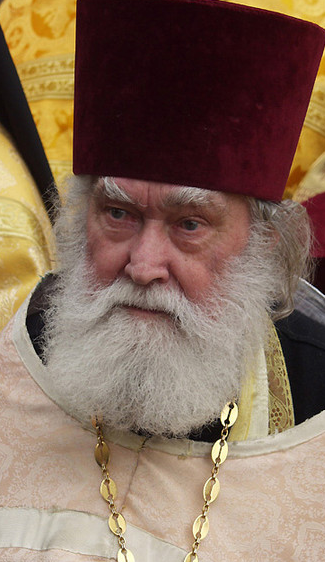The Moscow Council December 1, 1917
 Church preaching, in accordance with the Word of God (Matt. 28:19-20. Mk. 16:15, Acts 1:8, 1 Cor. 9:16, 2 Tim. 4:2, et al.), Church Canons (Apostolic Canons 36 and 58, Canon 19 of the Sixth Ecumenical Council, Canon 2 of the Seventh Ecumenical Council), and the directions of the typikon of the Church, is one of the major duties of the pastoral ministry and must be heard as often as possible at the public and private services, outside of services, but without exception at every Divine Liturgy celebrated on Sundays or Feast Days (Canon 19 of the Sixth Ecumenical Council), as well as in special circumstances that concern the life of the Church, society, or the State. As a reminder of this, Canon 58 of the Holy Apostles, Canon 19 of the Sixth Ecumenical Council, and Canon
Church preaching, in accordance with the Word of God (Matt. 28:19-20. Mk. 16:15, Acts 1:8, 1 Cor. 9:16, 2 Tim. 4:2, et al.), Church Canons (Apostolic Canons 36 and 58, Canon 19 of the Sixth Ecumenical Council, Canon 2 of the Seventh Ecumenical Council), and the directions of the typikon of the Church, is one of the major duties of the pastoral ministry and must be heard as often as possible at the public and private services, outside of services, but without exception at every Divine Liturgy celebrated on Sundays or Feast Days (Canon 19 of the Sixth Ecumenical Council), as well as in special circumstances that concern the life of the Church, society, or the State. As a reminder of this, Canon 58 of the Holy Apostles, Canon 19 of the Sixth Ecumenical Council, and Canon
2 of the Seventh Ecumenical Council shall be printed in the new editions of the Priest’s Service Book and of the Archieratikon, with the following commentary:
If a bishop or a presbyter celebrates the Divine Liturgy on a Sunday or Feast Day and does not preach the Word of God or commission the preaching to his concelebrants, and thus shows neglect for the clergy and the people, he commits a grave sin, for he saddens Christ, Who commanded to the shepherds of His Church to preach the Gospel. He disregards the word of the Apostle who says,
“Take heed to yourself and to your teaching; hold to that, for by doing so you will save both yourself and your hearers” (1 Tim. 4:16),
and forgets the injunctions of the Holy Fathers, shepherds, and teachers of the Universal Church. But, following the example of Christ the Chief Shepherd, of the Holy Apostles and of the Holy Fathers, may the bishops and presbyters of the Orthodox Church of Russia be divinely inspired preachers who console by the salvific teaching, denounce those who oppose it, and rather than only on Sundays or Feast Days, as was said above, but in every day may they preach the Word of God, and rather than only at the time of Divine Liturgy, may they also preach at other services and sacramental rites, if it is possible. So also may they at any other time call their flock to the hearing of the Word of God. (‘The Definition of the Sacred Council of the Orthodox Church of Russia on Church Preaching’.
The Moscow Council [1917-1918] The Creation of the Conciliar Institutions of the Russian Orthodox Church by Hyacinthe Destivelle, O.P., p. 25-26)
Source
